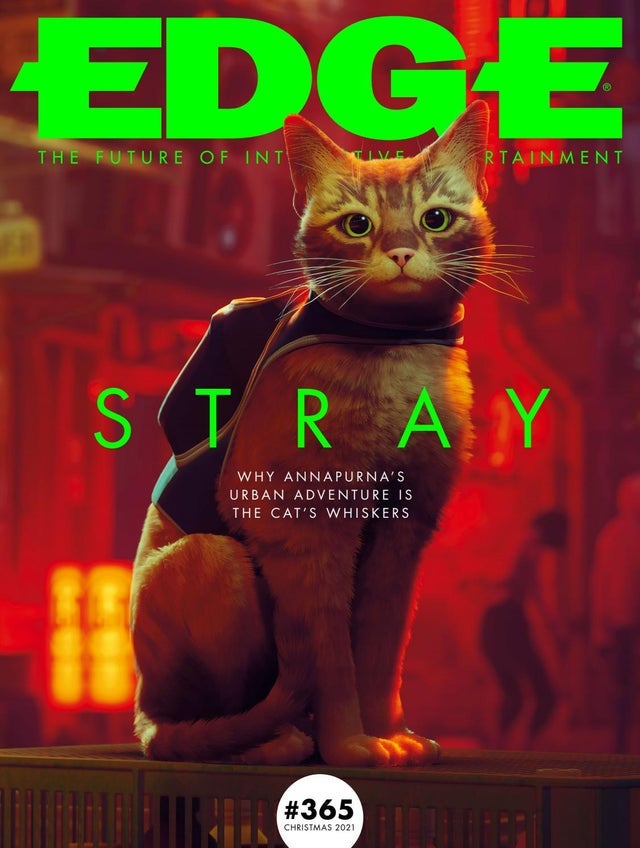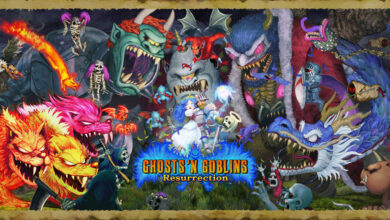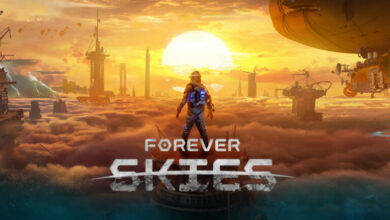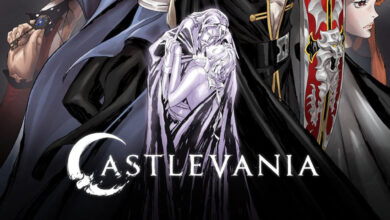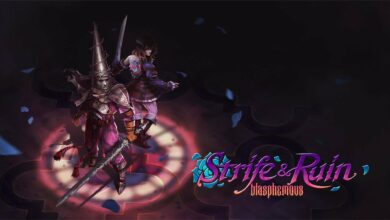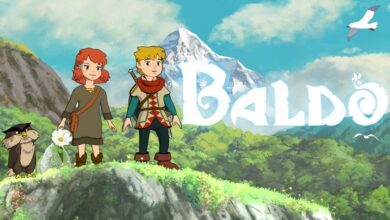Confira as notas da última edição da revista EDGE – 04/11/2021
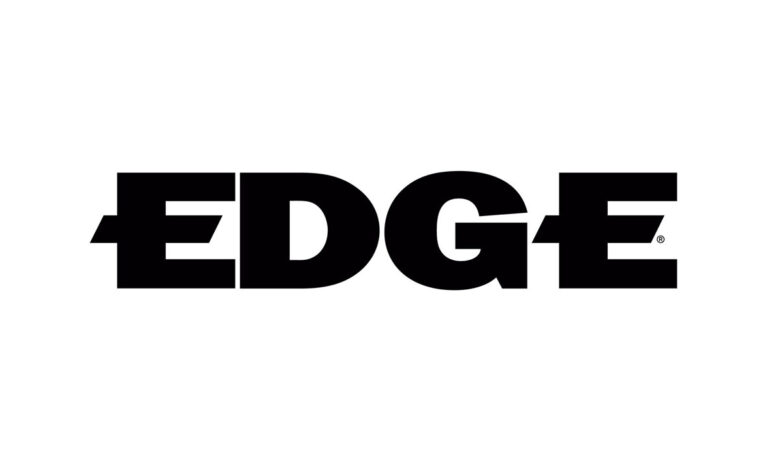
Confira abaixo as notas dos reviews da revista britânica EDGE #365 em sua edição lançada hoje para assinantes.
Metroid Dread [8]
“These are thankfully rare stoppages in a game that, much like its hero and its monster, is best in motion. It might be counter to the fantasy on which this genre is built (see Post Script) but Dread is actually at its best when shepherding the player, leaving just enough agency to ensure you don’t realise that’s what is happening. You’re guided seamlessly from a headlong rush across the map into careful exploration of its darkest corners, into the drawn-out tension of an EMMI encounter, into the fight with a tough boss who you can, at least, face head-on. All of these elements lock together so well that a newcomer might struggle to tell which one had been grafted on anew. A perfect organism? Not quite, but in its finest stretches Dread has a momentum that can mesmerise for hours at a time. It’s hard to look away from the screen – even when, in moments that reach towards full horror, you might want to.”
Far Cry 6 [5]
“Far Cry 6 is thus an exercise in banality, despite its vibrant landscapes and characters. But then perhaps, given their parallels with Cuban history, even they ultimately make it worse. It hits us in an early mission, as we charge around a tobacco plantation with a flamethrower, torching crops and soldiers to the tune of Bella Ciao. Hearing that anthem of resistance in a game so unwilling to take risks feels a little sad. We didn’t expect Ubisoft to revolutionise open-world gaming with Far Cry 6, but it might at least have given us the sense that it believes change is possible.”
Back 4 Blood [6]
“You could imagine a great Left 4 Dead sequel being built around such ideas. Back 4 Blood comes close at times, but it’s weakened by established wisdom about what a blockbuster game needs. As homages go, it’s reverential yet poisoned by doubt. It doesn’t trust Left 4 Dead’s genius enough to let it stand alone.”
Lemnis Gate [8]
“This isn’t only a game where a single shot can decide a match, turning a 3-1 defeat into a 4-0 victory, but one where you know those stakes in advance. The effect is like trying to play chess after a double espresso, and if we fumble as often as we triumph, that’s just more reason to keep coming back. Still, you can probably see why an empty map might appeal. That moment of peace and quiet, as we come down from one match and plan for the next. And the next. And the next.”
Lost Judgment [7]
“Inevitably, many of the other stories you pick up on the streets of Isezaki Ijincho (and to a lesser extent Kamurocho) descend into violence, which raises a question: is this a detective story, or an action game masquerading as one? And does it matter either way? We’d venture that it does: this still feels like a missed. opportunity for RGG Studio to do something different within the worlds it has built- even if that might mean longer gaps between releases as it works out how to make Yagami more gumshoe than grappler. In the meantime, those ongoing arguments between Sega and actor Takuya Kimura’s agency over image rights are cause for real concern. Even as he bodyslams kids half his age, Yagami remains the kind of principled, endearingly flawed hero of whom we’d like to see more. If nothing else, Lost Judgment proves it would be a great shame if he didn’t get another opportunity to find his niche.”
Inscryption [7]
“Randomness is part of the deal, of course, but even as the game’s knotty rules are internalised, there are others that seem beyond the player’s ken – and at times you sense it all getting away from Mullins, too. Simply, luck plays too big a role; a couple of bad draws can leave you with an unwinnable hand, and wipe away up to half an hour’s progress with almost nothing to show for it. That it deigns to throw you the occasional bone after successive failures feels patronising; worse is the condescending way it spells out puzzle solutions you’d worked out but hadn’t been able to execute because the RNG gods refused to smile upon you. What makes this all the more maddening is that there are moments of extraordinary ingenuity here; they’re just spread a little too thinly. Were Inscryption half as long, it would probably be twice the game. As it is, too many of those secrets, when finally teased out of the shadows, are greeted more with relief than delight.”
The Good Life [5]
“In other words, much like Hayward, you will find your feelings towards Rainy Woods oscillating between exasperation and amusement. The Good Life makes for a charmingly eccentric getaway for the 12 hours its story lasts, though you’d hardly want to spend weeks, let alone months, there. If nothing else (and we should probably extend our thanks to the game’s British cultural ambassador, Q-Games’ Dylan Cuthbert), it briefly gives us a reason to feel fond of this sceptred isle. Nowadays, that’s no mean feat.”
Mon Amour [7]
“All of this is delivered in classic Kimura style, with vibrant colours, surreal flourishes, babbling speech samples and a loop of scat singing (one variant comes with a percussive intro reminiscent of a certain jungle based reality show) that you will struggle to evict from your brain. A small diversion, in other words, that lives up to both parts of the equation.”
ElecBeat [8]
“In both its minimalist presentation and constant string of epiphanies, we’re reminded of HAL Laboratory’s BoxBoy! series. You may find yourself, as we did, cooing like a lovelorn pigeon at the unpretentious ingenuity of some of these puzzles. Like BoxBoy!, its austere looks belie the gentle playfulness of its designs, and it throws in a few amusing visual flourishes besides: sometimes Elec will put his head back on upside-down, while standing on a plinth to switch on a dormant screen sometimes displays nothing more than a spiral of pixelated poop. Short but memorable, this is a low-key triumph: if Japanese indie developer Nama Takahashi doesn’t go on to even greater things, well, we’ll be shocked.”
Unpacking [8]
“The passage of time is communicated through changing decor and technology’s march, as a GameCube is joined by a Wii, a desktop PC supplemented by a laptop, and a chunky monitor replaced with a flatscreen. When we find ourselves marvelling at familiar items (the pig plush! The Ghost World DVD!) that have survived the trip, just as we feel a twinge of sadness at what’s missing, we wonder: can you feel nostalgic for someone else’s past? This clever, relatable and decidedly stress free game a simple idea, near perfectly realised – suggests it’s entirely possible.”
Beast Breaker [5]
“That can, and does, happen with annoying regularity, making straightforward battles attritional, as scales grow back by the time you’re perfectly lined up. With zero punishment for failure, it’s not frustrating so much as tedious, success coming down as much to favourable bounces and the whims of the beast’s movement as skill or strategy. Luck is a factor in Peggle, of course, but there is none of PopCap’s masterful use of feedback here, nor anything close to its triumphant celebrations when you win. Vollmer will doubtless bounce back, but from such an evidently talented designer this feels like a curious misfire.”
